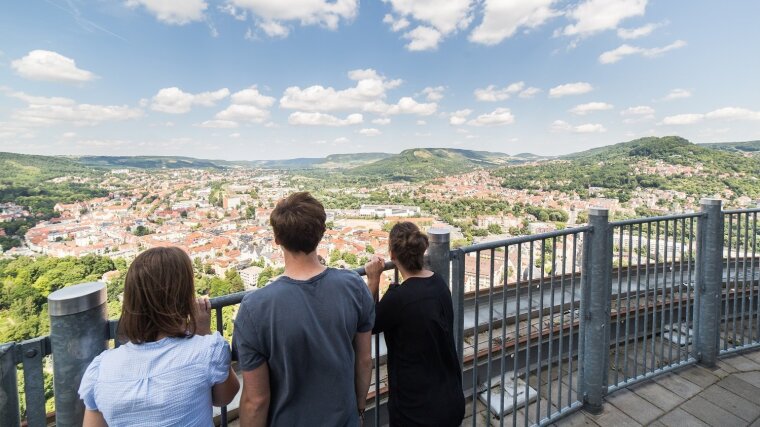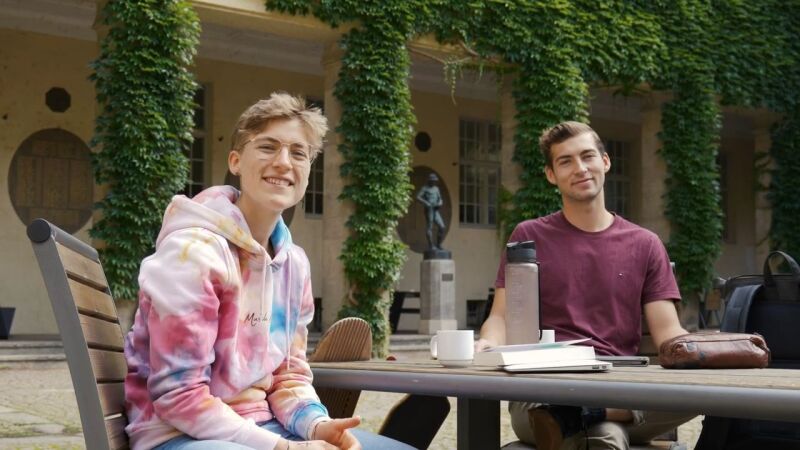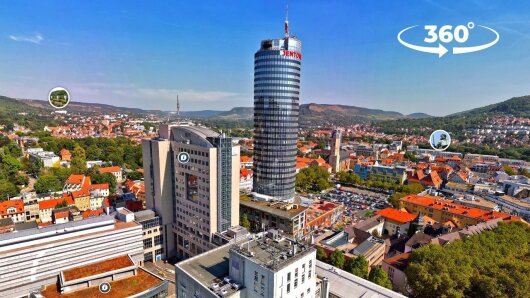
Based on the paradisiacal names of the city park and railway station, the term "student paradise" describes pretty well what it's like to live and study in Jena. Jena is a typical university city: almost a fifth of the 110,000 inhabitants are students. The university is not a campus university on the outskirts of the city, but is located right in the centre. This gives the city its student flair.
Lively student life and many leisure activities
At the university and in the city, you will find many leisure activities ranging from culture and nature to sports. You can choose from over 160 sports courses at University Sports alone! You can also get involved in one of the university groups , for example.
The respective student councils also often organise events such as games and barbecue evenings or meet-the-prof rounds, where you can get to know fellow students from different semesters and teaching staff outside of the lecture hall.
If you are looking for peace and quiet, Jena is not far from nature. The city lies in the Saale valley and is surrounded by steep shell limestone slopes. The Jena mountains can be explored from various hiking trails and the great views of the city can be enjoyed.
The good thing is: the distances in Jena are short. It is usually only a few minutes on foot or by bike from the lecture theatre to your favourite café or park.
Student ID = semester and culture ticket
By the way: The semester fee also includes a semester and culture ticket: This means that you can use your student ID to travel on public transport in the area covered by the Central Thuringia Transport Association and on regional trains throughout Thuringia.
It also includes admission to the Jena Theatre, the Jena Philharmonic Orchestra, the city's museums and the two Jena arthouse cinemas "Kino am Markt" and "Kino im Schillerhof" (more information on the semester ticketExternal link and culture ticketExternal link).
This is unique in Thuringia!
Close network between university, city and companies
Another special feature is the close co-operation between the city, science and business. There is not only the university and the Ernst Abbe University of Applied Sciences, but also several non-university research institutions.
These include Max Planck, Leibniz and Fraunhofer Institutes, as well as high-tech companies, particularly in the subject areas of optics and photonics, bioanalytics and biotechnology, precision engineering and IT and software technology.
This provides students and graduates with a wide range of opportunities for internships, final year projects|thesis|dissertation and career entry.
Valentine and Jonas show you the University of Jena
placeholder image — Excerpt from the video "We show you how nice it is to study at the University of Jena."
Screenshot: Universität Jena
